Volunteers who saved a hundred turtle hatchlings at Gladstone beach say more help needed
After residents witnessed 100 disorientated turtle hatchlings spread out in a Gladstone park, volunteers have called on the council to help with two major safety issues. Here’s what advocates say needs to change.
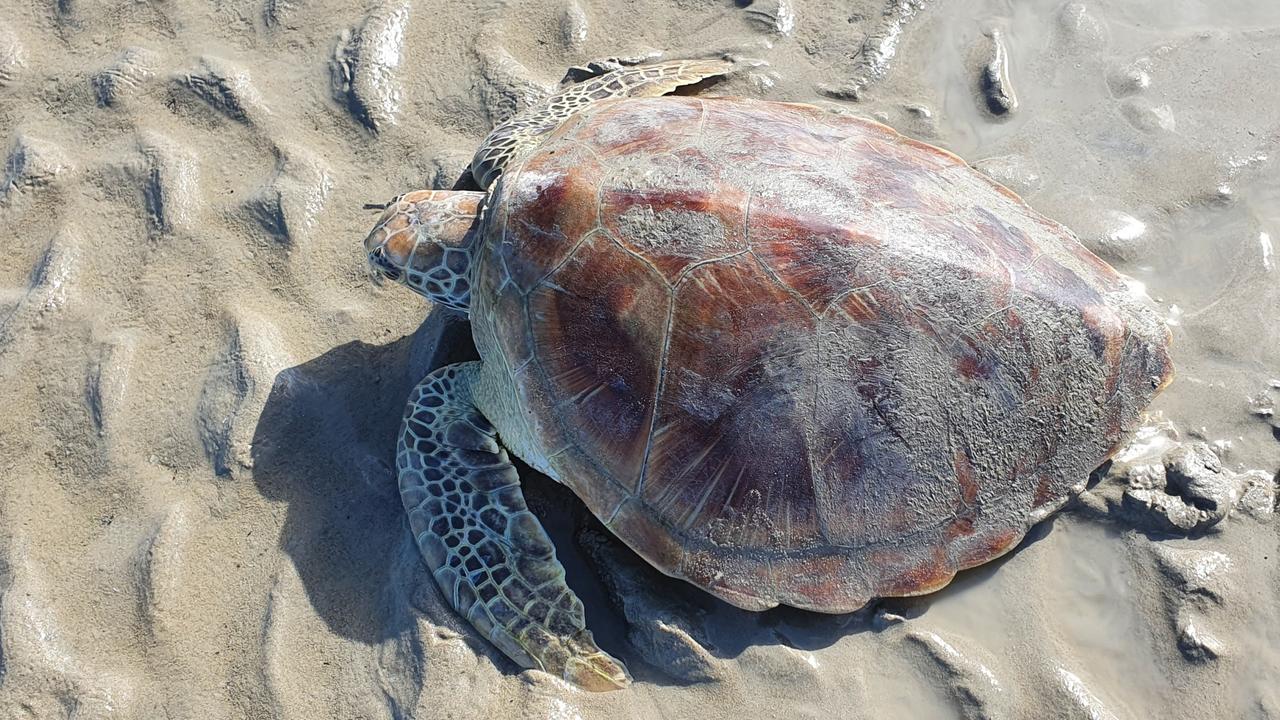
Gladstone
Don't miss out on the headlines from Gladstone. Followed categories will be added to My News.
Volunteers saved more than 100 turtle hatchlings at a popular Gladstone beach, but advocates say more help is needed to protect the vulnerable reptiles.
Residents on their morning run were alarmed to discover dozens of confused turtle hatchlings spread across the park and entering a nearby toilet block at Tannum Sands, an event becoming more common along Central Queensland’s beaches.
Team Turtle CQ volunteer, Ian Anderson has helped protect turtles in Tannum Sands for the past five years and he says there are two major issues currently impacting turtle safety in the region.
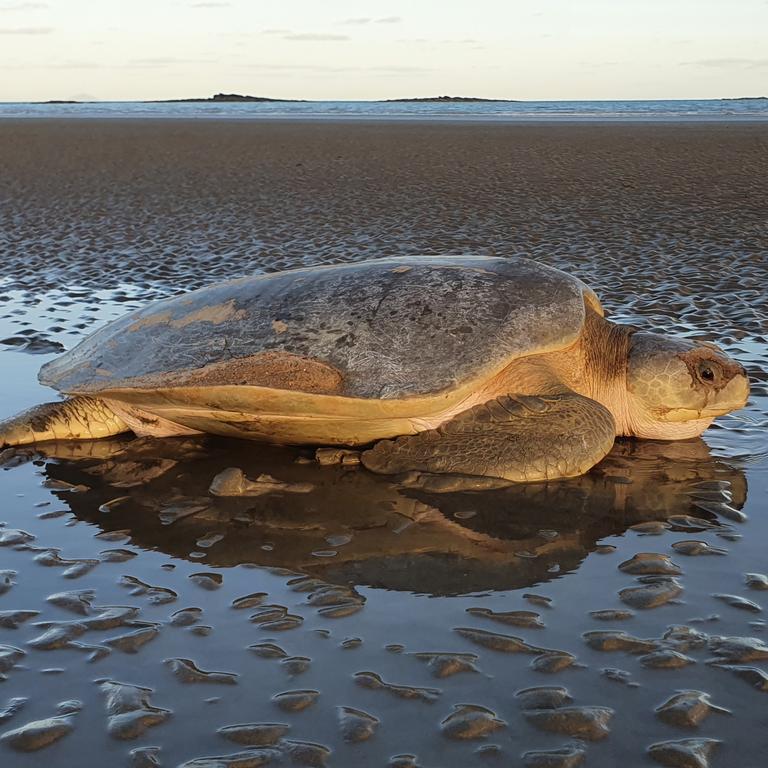
“We had been monitoring the nest for weeks and knew the hatching event was due but when volunteers got down to the beach, they found them spread out across the park and in the troughs and members of the public were picking them up,” Mr Anderson said.
“We were able to locate them quickly enough and after going back to the nest and establishing 103 had hatched, we know all but two made it to the water,” he said.
Mr Anderson identified the lights near the Tannum Sands Surf Club as a big problem for hatchlings which become disorientated while trying to reach the ocean, an issue he has raised with Gladstone Regional Council.
“I approached council earlier in the summer after the first lot of hatchlings ended up in the same spot, and tried to discuss the possibility of turning off or dimming the lights for the precise nights we knew they would be due out,” he said.
“But they made it seem as if it was too hard or too much effort, and because of the way the lighting system works they argued it was not practical or a priority.”
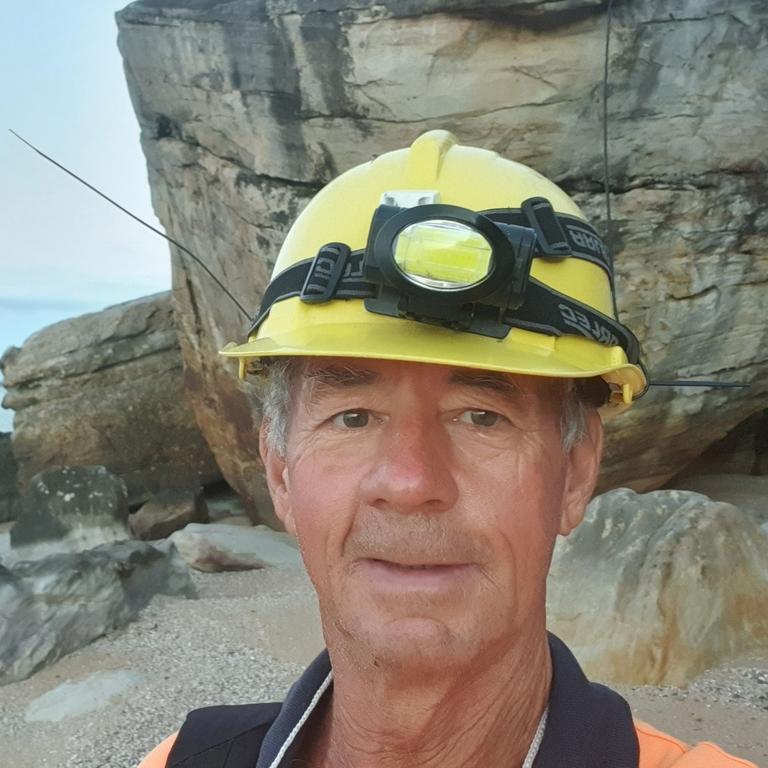
Mr Anderson said local governments elsewhere had successfully implemented systems which dimmed lights, or had them scheduled to turn off during peak hatching periods, such as at Mon Repos and Heron Island.
A Gladstone Regional Council spokesman confirmed they were aware of the recent instances of hatchling disorientation and were currently investigating how the lighting at Millennium Esplanade may have contributed.
“Some of the measures that may be implemented could include replacement with suitable turtle-sensitive lamps and encouragement of screening through foredune revegetation,” the spokesman said.
“Council also works closely with Team Turtle CQ, co-ordinated by the Fitzroy Basin Association, who monitor marine turtle nesting events in the Curtis Coast.”
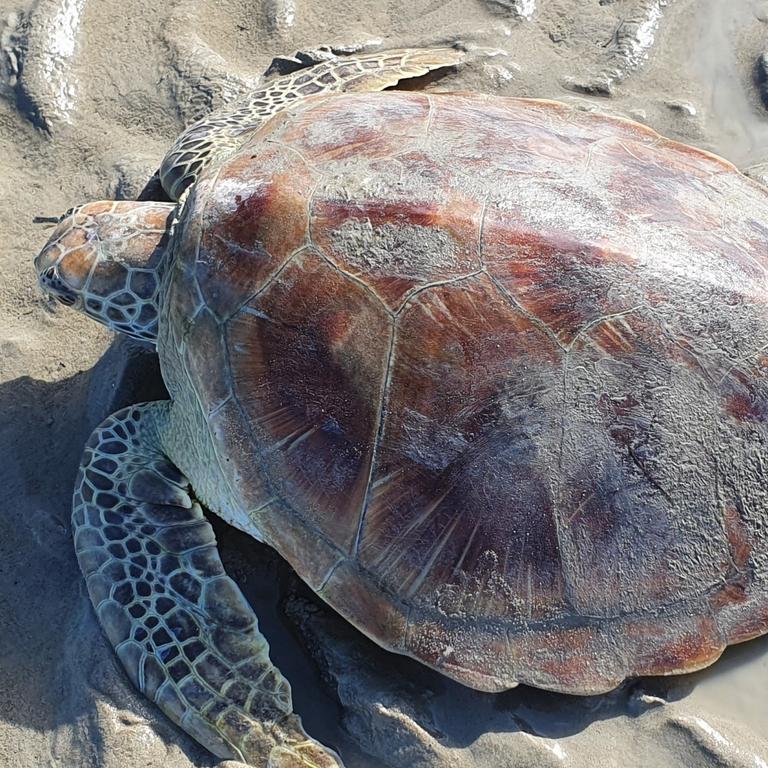
Another issue having devastating impacts on local turtle hatchlings is fox predation.
He confirmed there were seven known instances over the past summer where foxes had broken through protective fencing and taken hatchlings, with six at Wild Cattle Island, and another at Canoe Point the night before the nest was due to emerge.
Hard plastic mesh does not prevent foxes from chewing through it, says Mr Anderson, but more intensive barriers provide their own complications.
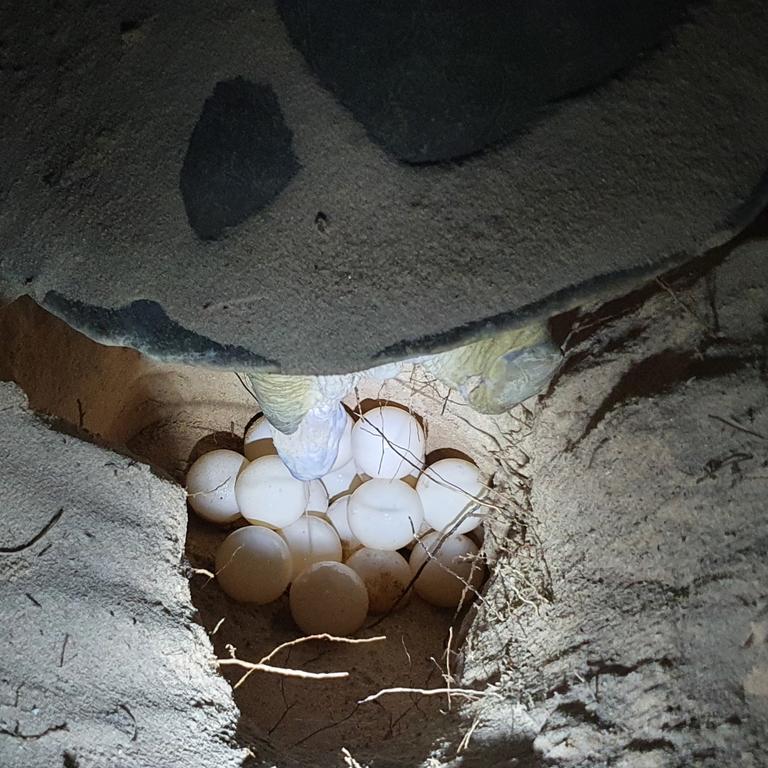
Aluminium mesh is an alternative, however, groups such as Team Turtle CQ must consider potential harm to the public who could be injured by the sharp edges, especially when nests are located near busy thoroughfares.
“It’s just devastating, the foxes dug up the nest and took all the hatchlings, and it happens because once there’s signs the nest is ready to hatch the foxes smell it,” he said.
“We need to manage the safety aspect of aluminium, to ensure there’s no trip hazards and adequate signage, but here at Tannum it would be very difficult to do because of how busy it is.”
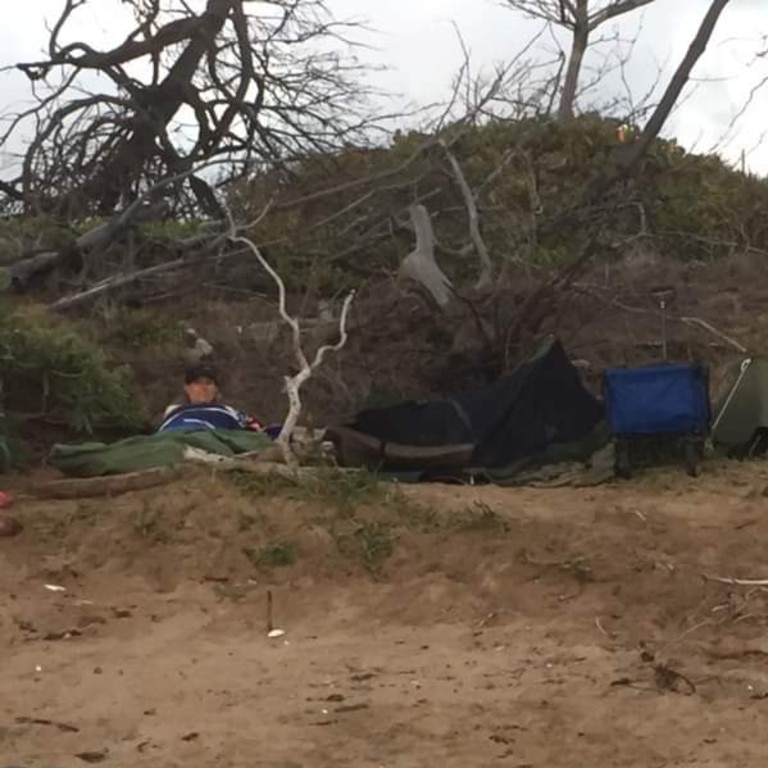
Gladstone Regional Council has committed to the CQ Coastal Fox Control Program which will operate seasonally from September for the next three years and partners with the Fitzroy Basin Association and the state government’s Parks and Wildlife team.
The program involves fox den detection dogs and handlers, using the practice of den fumigation to locate and fumigate fox dens during breeding season near turtle rookeries.
Mr Anderson said community awareness was essential to the task of helping support a flourishing local turtle population and was excited each year there are new and returning volunteers.
More Coverage
Originally published as Volunteers who saved a hundred turtle hatchlings at Gladstone beach say more help needed








